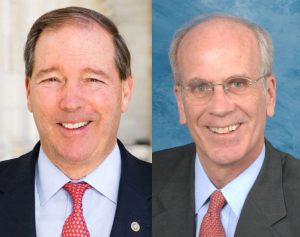 Legislation to change or repeal the Renewable Fuel Standard usually targets conventional ethanol, but companion bills introduced in Congress this week hit soy biodiesel as well.
Legislation to change or repeal the Renewable Fuel Standard usually targets conventional ethanol, but companion bills introduced in Congress this week hit soy biodiesel as well.
Rep. Peter Welch (D-Vt.) and Senator Tom Udall (D-N.M.) introduced the GREENER Fuels Act (Growing Renewable Energy through Existing and New Environmentally Responsible Fuels Act). The legislation is backed by former Rep. Henry Waxman, who now chairs an environmental group called Mighty Earth, and claims “conventional biofuels like corn ethanol and soy biodiesel are destroying wildlife habitat at home and abroad, polluting waterways, and increasing global warming pollution.”
“As representatives of the nation’s leading advanced biofuel, we appreciate Senator Udall’s commitment to environmental stewardship but have concerns with his proposal. It is based on a series of now-debunked studies and fails to recognize the environmental and economic benefits of utilizing homegrown renewable energy,” said Kurt Kovarik, vice president of federal affairs at the National Biodiesel Board. “Biodiesel reduces lifecycle greenhouse gas emissions by anywhere from 57 to 122 percent compared to petroleum diesel, so we would hope that any effort to reform the RFS would continue the growth of clean-burning alternatives to petroleum diesel, like biodiesel.”
The bill would cap the amount of ethanol that can be blended into conventional gasoline at 9.7 percent, even though it is currently more than 10 percent. “If this strange and unserious legislation ever became law it would have the opposite of its intended effect,” said American Coalition for Ethanol CEO Brian Jennings. “Dismantling the RFS in this way would increase pump prices and greenhouse gas emissions.”
National Corn Growers Association president Kevin Skunes disputes the bills’ premise that corn ethanol is harming the environment. “Ethanol production is not significantly impacting land use. In fact, planted corn acres were lower in 2017 than when the RFS was expanded in 2007, yet we produced significantly more biofuels,” said Skunes.

